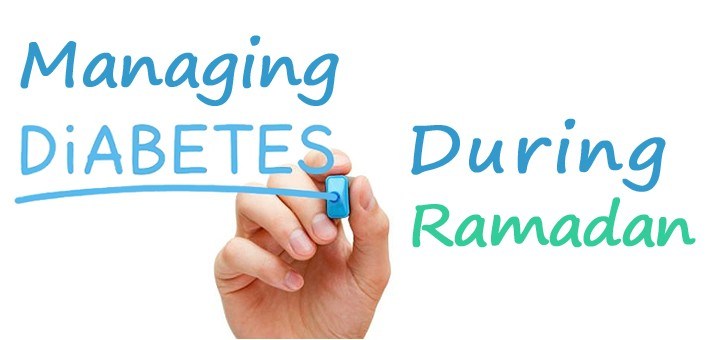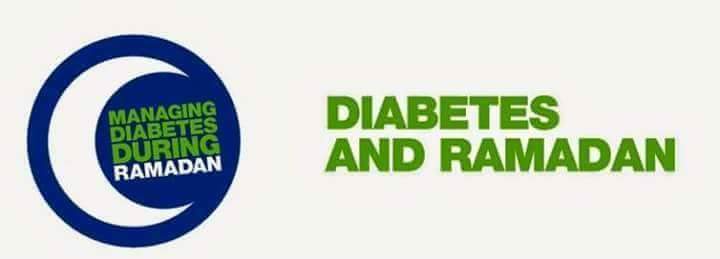Diabetes management during Ramadan
Monitor your blood glucose regularly during the fast, especially in the early days.

Delay your Suhoor meal until the latest time, just before dawn and not at midnight. Break your fast (Iftar) at the earliest time.
Choose water or aim to drink sugar free and caffeine free drinks frequently throughout the evening and before dawn.
If you experience hypoglycemic symptoms, it is advisable to break the fast and make up for it after Ramadan.
Avoid exercise during the day, and take rest when possible to help avoid lowering of blood glucose levels.Limit physical activity during fasting hours and be more active after sunset.
Watch out for eating too many sweets and keep the portion sizes moderate. Overeating is a greatest risk.
Continue taking your diabetes medicine, regarding dosage and timings talk to your doctor.
Suhoor meal should contain a balance of whole grain sources of complex carbohydrates as well as some protein from lean sources of meat, fish and poultry, small amounts of heart healthy fats, limit added sugars this will slow the digestion and the feeling of fullness last as long as possible into the day. Also include fresh fruits, vegetables, and yoghurt in your meals. Limit the dates (tamor) to two or three pieces.
Keep sensible portions in mind and follow the same guidelines for healthy eating that you do the rest of the year. with an emphasis on whole grains.
Image courtesy – arabamerica








I am curious to find out what blog platform you’re working with? I’m experiencing some minor security problems with my latest website and I would like to find something more safeguarded. Do you have any solutions?